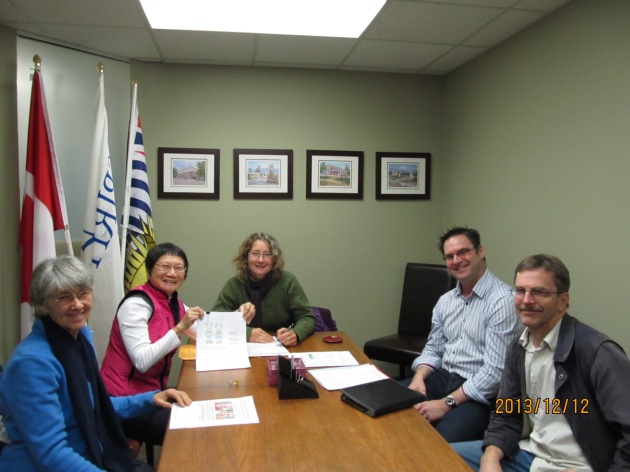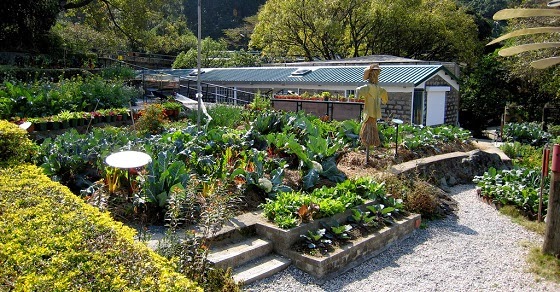[cban e-News] News: Terminator Defeated for Now, Seralini Study Retracted, Organic Farmer Sues, Canada’s Agriculture Omnibus Bill
Groups, Newsletters
Outlook Active View
Help This Farmer Stop Monsanto’s GM Canola/Oil Seed Rape – Short Version
play video
Dear Friends,
We are reporting some incredibly important developments from around the world, including the Canadian government’s new Agriculture Omnibus Bill. The news below exposes the intense fight around the future of GM crops.
Last week your protests helped to stall the biotech industry’s move to get GM sterile seeds (Terminator technology), despite an international moratorium. The update from Brazil is below. CBAN is coordinating the Canadian Ban Terminator Campaign as part of the international campaign. Industry will do everything they can to be able to use this technology, and we will do everything we can to stop them.
Meanwhile, an Australian farmer is close to his court date: he lost his organic certification due to GM canola contamination. This is a familiar story to Canadians but is a new fight in Australia, and for the first time, a single farmer is taking his neighbour to court for contaminating his farm.
Below are also updates on the retraction of the Seralini study of GM corn – this first long-term study of GM corn has now been retracted by the scientific journal that published it. This means that it is no longer a part of the scientific literature. Its an astonishing story, with lots of strong analysis that you can read.
The right to save seed is under attack. Terminator technology is only one tool that could be used to stop farmers from saving seeds. Next year, CBAN will join with farmers across Canada in stopping further enclosures on seed saving. We introduce the newly proposed Agriculture Omnibus Bill below.
As you can see, next year is already shaping up to be a defining time in the movement for food sovereignty. We look forward to working with all of you to create a better future. Thank you for joining us.
Best regards, Lucy Sharratt, Coordinator, Canadian Biotechnology Action Network (CBAN)
P.S. You can donate today at http://www.cban.ca/donate Your tax-deductible gift is greatly appreciated.
********
Your Actions Worked! Terminator Stopped for Now
Fate of Pro-Terminator Bill Uncertain – Brazil’s Judiciary Commission in Confusion: Charges, Counter-Charges and Confrontations
Confronted with 35,000 institutional and individual signatures on a petition growing by several hundred an hour, Brazil’s Judiciary Commission agreed to take the Pro-Terminator Bill off the agenda leaving open the possibility that the bill will not be passed until Congress reconvenes in early February. Terminator technology is GM sterile seed technology.
“There is no reason to trust this process or reduce our pressure,” says Maria José Guazzelli of Centro Ecológico, “although the government and commission have been taken aback by our opposition, they could pass the bill at almost any moment. If the vote doesn’t come before Friday, December 20, we will have a breathing space until February but anything could happen next week and everything could happen in February.”
Brazilian allies both in the Commission and among the civil society organizations attending the negotiations say that representatives and government officials have been shocked by the scale in ferocity of global opposition to the proposed legislation.
Supporters of the suicide seed legislation have privately argued that GMO opponents should welcome their bill since it will prevent farmers from reusing GM seeds. This is both technically and politically wrong. Terminator technologies are highly imperfect and the sterility trait will inevitably bleed into neighboring fields and crops meaning that farmers will unwittingly plant seeds that they will never be able to harvest. More ominously, Terminator is fundamentally a ground-shifting market strategy. If major seed companies are allowed to use Terminator technologies they will immediately transfer all of their plant breeding research onto the suicide seed platform which affords them anywhere from 2 to 4 times the profitability of non-Terminator seeds. With the incentive of windfall profits, the multinationals will use every resource at their command to persuade government regulators to accept Terminator varieties and will quietly withdraw less-profitable, non-Terminator varieties from the market leaving both farmers and countries stranded with only the Terminator option. Terminator profoundly transforms the economic and political dynamics of global plant breeding.
Lots of people had difficultly with the petition – we now have the petition in English http://tinyurl.com/owrgt8c and for non-Portuguese speakers: in order to sign to the petition on change.org, you must enter your first name (Nome), last name (Sobrenome), email address, street address (Endereço), city (Cidade), state (Estado), zip code (CEP); tick the first box if you want to receive mailings from change.org; tick the second box if you want to receive updates on the Terminator issue.
For more information on Terminator technology please see http://www.cban.ca/terminator
********
November 28, 2013: The editor of the journal Food and Chemical Toxicology has decided to retract the (long-term) study by the team of Prof Gilles-Eric Séralini, which found severe toxic effects, including kidney and liver damage and increased rates of tumours and mortality in rats fed Monsanto’s genetically modified NK603 maize and/or the associated herbicide Roundup. The decision to retract the paper follows the journal’s appointment of Richard E. Goodman, a former Monsanto scientist and an affiliate of the GMO industry-funded group, the International Life Sciences Institute, to the specially created post of associate editor for biotechnology.
GMWatch believes the retraction of Prof Séralini’s paper is “illicit, unscientific, and unethical” and violates the guidelines for retractions in scientific publishing
http://www.gmwatch.org/index.php/news/archive/2013/15184-journal-retraction-of-seralini-study-is-illicit-unscientific-and-unethical
Most recently, the editor of the journal published a defence of the retraction. He says, “It is the entire paper, with the claim that there is a definitive link between GMO and cancer that is being retracted.” However the Seralini paper does no such thing. There is no claim or conclusion in the paper relating to cancer. http://www.gmwatch.org/index.php/news/archive/2013/15215-did-journal-editor-read-the-seralini-paper-before-retracting-it
“Uncertainty is inherent to science, as is the debate between conflicting explanations of findings. Openness of this debate and independent research to find the truth are crucial prerequisites for the survival of independent science.” http://www.ensser.org/democratising-science-decision-making/ensser-comments-on-the-retraction-of-the-seralini-et-al-2012-study/
You can also read an Open Letter to Canadian Consumers from E. Ann Clark, Associate Professor (retired), Plant Agriculture, University of Guelph.
http://www.cban.ca/Clark-letter-to-Canadians-re-Seralini
********
Landmark Legal Case in Australia: Organic farmer suing his neighbour for GM contamination
Steve Marsh is an Australian farmer who lost his organic certification when Monsanto’s genetically modified (GM) canola blew onto his farm from a neighbouring property in 2010. Since then, Steve lost most of his income and has been struggling to get his organic certification back.
Monsanto has a no liability agreement with GM farmers that prevent them from being sued. The only avenue Steve had to protect his livelihood was to take his neighbour to court. It is due to start on the 10th February 2014 in the Western Australian Supreme Court and is scheduled to run for three weeks.
This is the world’s first case of an organic farmer using the courts to recover loss and damages from a GM farmer. This case has been described as a landmark case to determine who should take responsibility in case of GM contamination. If Steve wins it will set a precedent to guide the application of common law to GM contamination and will be of interest to lawmakers worldwide.
From 2001 to 2007 Saskatchewan Organic Directorate’s Organic Agriculture Protection Fund (OAPF) committee supported the province’s certified organic farmers to bring a legal action against Monsanto and Bayer to obtain compensation for losses due to contamination of fields and crops by GM canola. Because the courts would not certify the case as a class action, the issues of liability due to GMO contamination have never been tested in a Canadian court. The OAPF Committee continues its work to protect the right to farm GMO-free and the right to eat GMO-free.
Please watch and share the short video explaining Steve’s story and share it with friends, family and colleagues. https://www.youtube.com/watch?v=YpQHuUTfRro
You can also donate to support this landmark case.
The Safe Food Foundation, Australia
Home
http://www.facebook.com/safefoodfoundation
https://twitter.com/#!/SafeFoodFound
********
Seed Saving Under Attack in Canada: New Agriculture Omnibus Bill
Canada’s Minister of Agriculture, Gerry Ritz has just introduced the Agricultural Growth Act (AGA). The government is calling the AGA an omnibus bill for agriculture because it proposes amendments to a number of acts dealing with plant breeders’ rights, feed, seed, fertilizer, animal health, plant protection, monetary penalties, ag marketing programs and farm debt mediation.
The Act would amend the Plant Breeders’ Rights Act to align it with the requirements of UPOV ‘91 (the International Union for the Protection of New Varieties of Plants). UPOV ‘91 is about restricting what farmers can do with seed and giving seed companies powerful new tools to extract money from farmers: “These seed corporations would be able to extract money from farmers on their entire crop,” Terry Boehm of the National Farmers Union explained, “The cascading right would allow seed corporations to collect royalties at any point in the food system, but most likely when farmers sell their crop. This means that the seed companies would generate revenue on a farmer’s entire production rather than just on the seed purchased to grow the crop…The plant breeder/seed corporation would have total control of seed, including exclusive control of conditioning (cleaning and treating), stocking (bagging or storage), importing, exporting, and sales of seed. This upsets thousands of years of normal agricultural practice whereby farmers always saved seed for their next crop.”
The National Farmers Union Seed and Trade Committee is undertaking a thorough reading of the Act, and will prepare a detailed analysis of its implications for farmers in the near future.
http://www.nfu.ca/story/new-ag-bill-throttles-farmers-threatens-seed-sovereignty-says-nfu
Lucy Sharratt, Coordinator
Canadian Biotechnology Action Network (CBAN)
Collaborative Campaigning for Food Sovereignty and Environmental Justice
Suite 206, 180 Metcalfe Street
Ottawa, Ontario, Canada, K2P 1P5
Phone: 613 241 2267 ext. 25
Fax: 613 241 2506
coordinator@cban.ca
http://www.cban.ca
https://www.facebook.com/cban.canadian.biotechnology.action.network
@biotechaction









Recent Comments